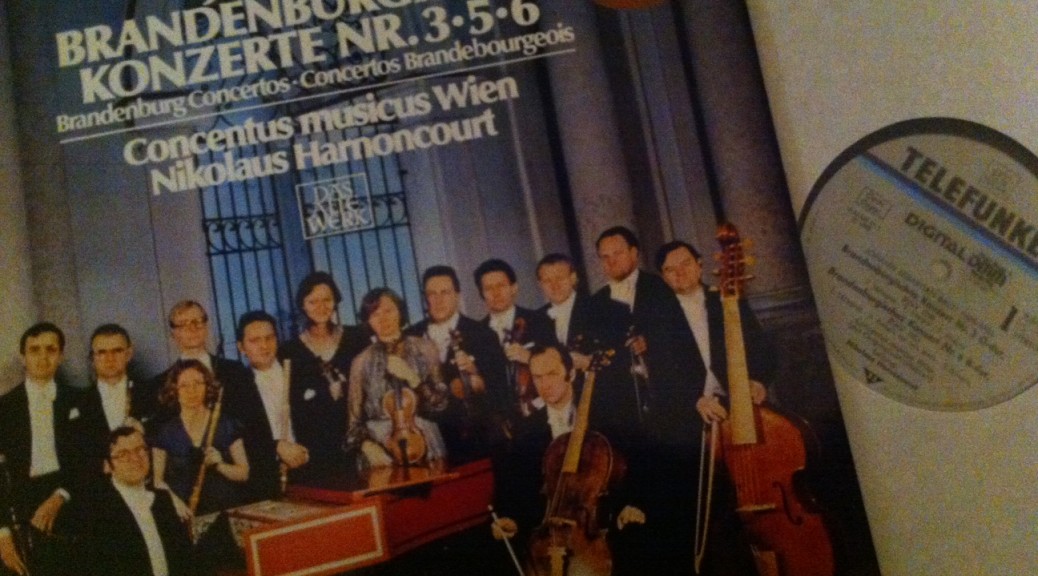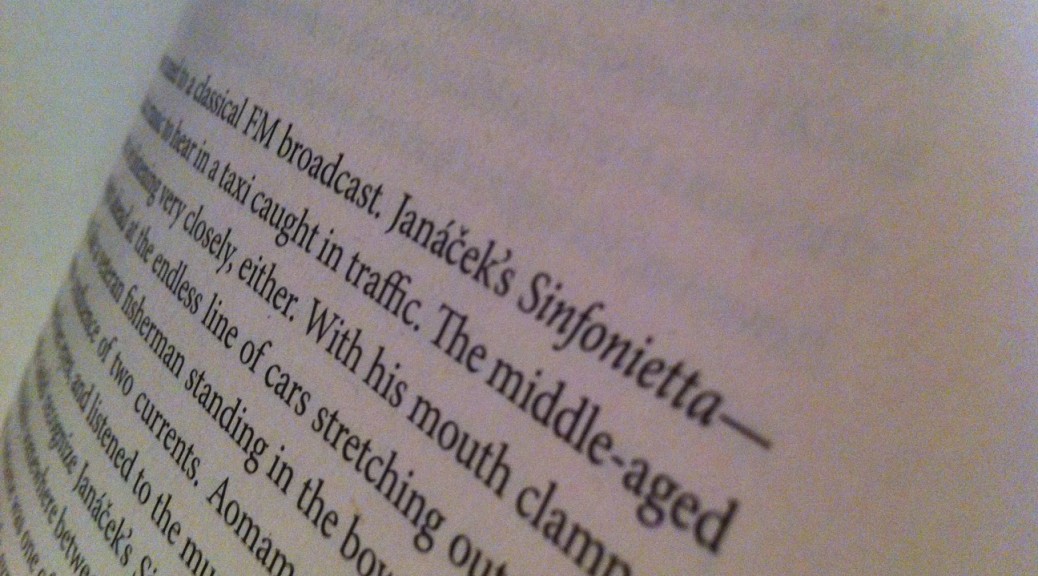Brandenburg Concertos
The Brandenburg Concertos are a series of six instrumental works of the Baroque period. I am not a big classical music fan, but find this a good album to work to. Universities like Standford have done studies of people’s brains while listening to baroque music and noted the increase in brain activity and concentration. With that said a lot of the music of this type makes me want to rip my ears off. This will be a familiar sounding album, as it is one of those classics you’ve heard in the background of movies, and performances a million times before. It is also name checked in Haruki Murakami’s novel Hard Boiled Wonderland and the end of the world.
Bach composed these pieces over a long period of time while working as the Kapellmeister (person in charge of music in a chapel) of Kothen. Bach uses around 17 instruments, because this was the number of musicians he had at his disposal in his job as Kapellmeister. There is a real mix of strings, brass, woodwind, you name it lots of harpsichord etc. This mixture of instruments was one of the reasons it was send out on the holder record which is a phonograph record containing a broad sample of the sounds, language and music of the planet, as sent into space with the two voyager probes.
Baroque music is said to work on your brain in a different way to other classical music. The tempo various instruments working in different tempos is said to stimulate both sides of your brain. As soon as I heard this I went on the hunt for some. I can’t say I really love classical music, so this is at times akin to eating food you hate because you’ve been told it’s good for you. However I find this is an enjoyable piece of music to listen to.
These concertos innovated with the traditional forms of the period, and in line with the name baroque ornamented the sound. This and other baroque works made music more complex than it had ever been before.
Baroque music such as this has a tempo of 50 to 80 beats per minute. Researchers at John Hopkins University say this leads listeners into intense focus in the alpha brain wave state. They note that listening to this kind of music improves learning vocabulary, memorisation, and reading. They note that different kinds of music help with different feelings you may want to engender.
Another source I found says that rhythms of around 60 beats per minute is similar to a resting heart rate.
Released
1721
Lyrics
No lyrics, all instrumental.
Mood
The mood is very ye olde advertisement for mead with some freaks in smocks with bowl haircuts wandering across the screen. It flows along and despite all the connotations that usually cause me to switch off, successfully bypass that fuse in my head and keeps moving till soon I’ve forgotten it’s on in the background.
Good to work to
Good for anything that requires concentration. This is a good one to concentrate to. The fact it isn’t like any of the other music I listen to or like helps a lot.
Like
There are many other artists of the Baroque era, but I have no real background in this type of music. However, I would recommend other classical music like Lizst might work for you.
The Artist/s
Johann Sebastian Bach is one of the big guys of classical music. You name it he did it.
This work was commissioned for Christian Ludwig, Margrave of Brandenburg-Schwedt. This music was from an era where artists worked under the patronage of a rich, usually royal protector. You name it they did it from playwrights like Shakespeare, painters like Leonardo, and of course the musicians. Classical musicians were contemporary musicians at the time and many like Bach moved around with work, but at least his role as a musician could get him jobs.
Other works
Hell yes, Bach was a working musician. Mentally I can’t put myself through listening to a plethora of classical music. This is a goody though.
Where Can I buy it, and in what formats
You should be able to pick this up in multiple formats, by multiple orchestras. I think they are all going to be fairly good vaue, so I wouldn’t worry too much which one you get your hands on.
The Verdict
Yes a simple an easy pick. If you just want a bread and butter album that will be able to deliver you some concentration this is the one to go for.

